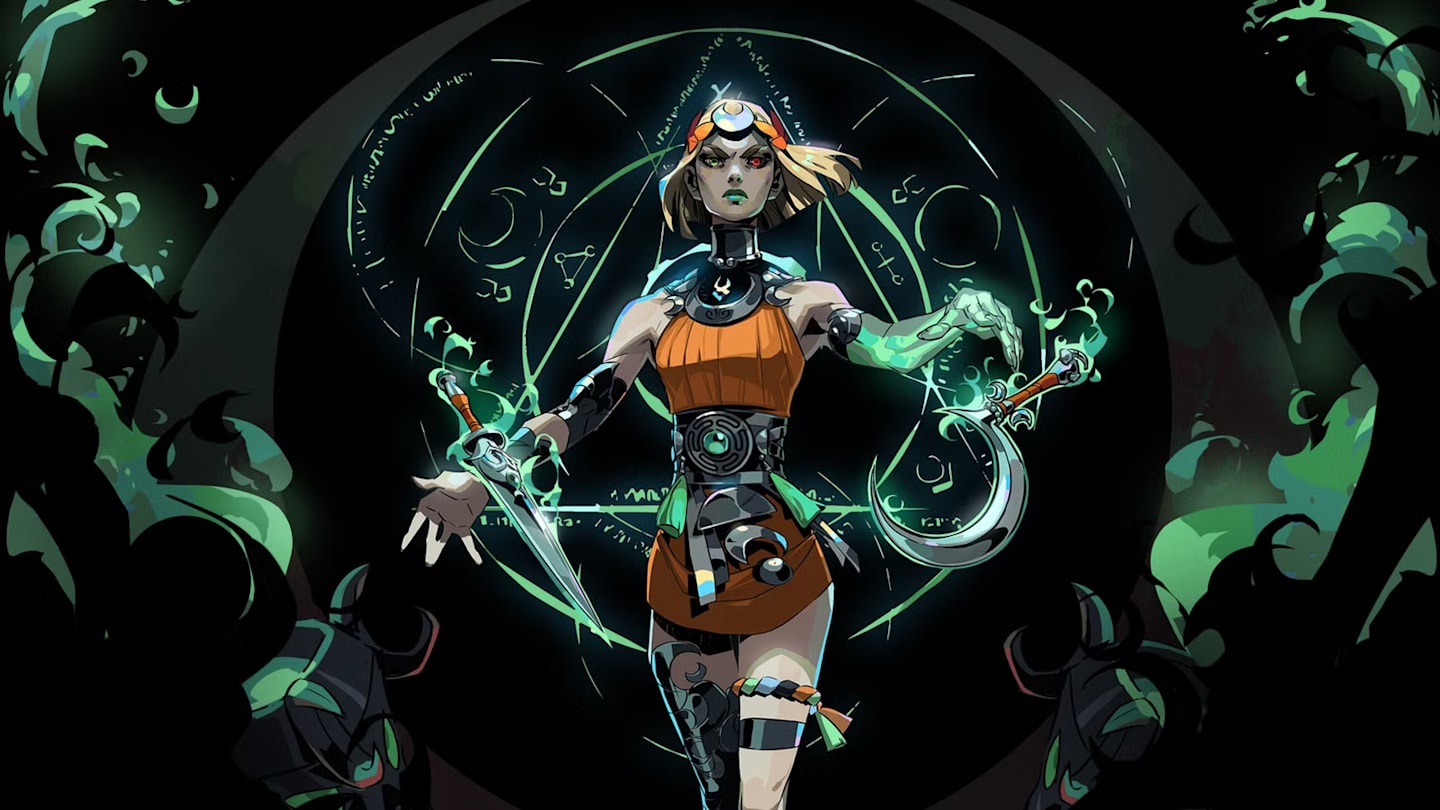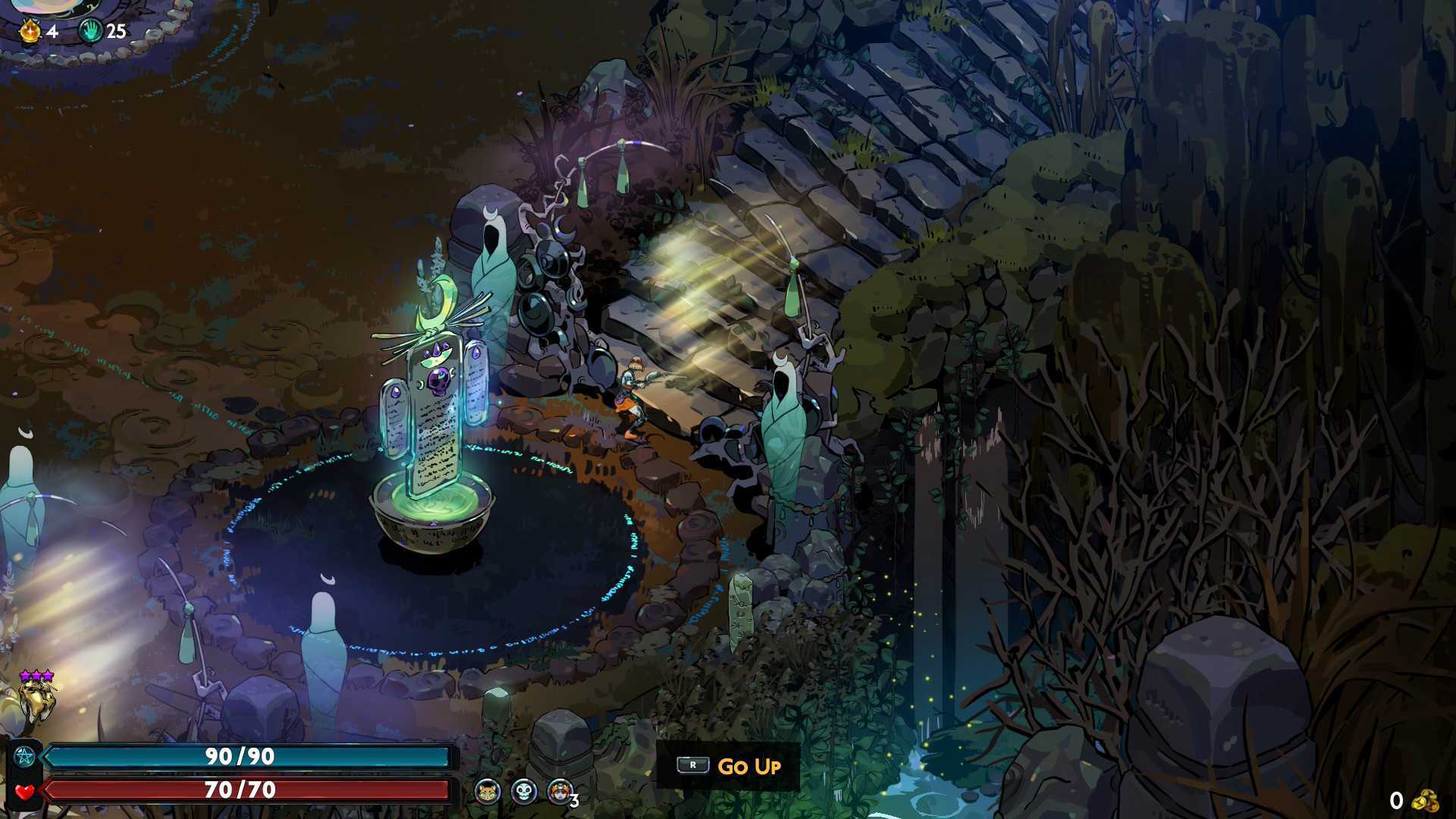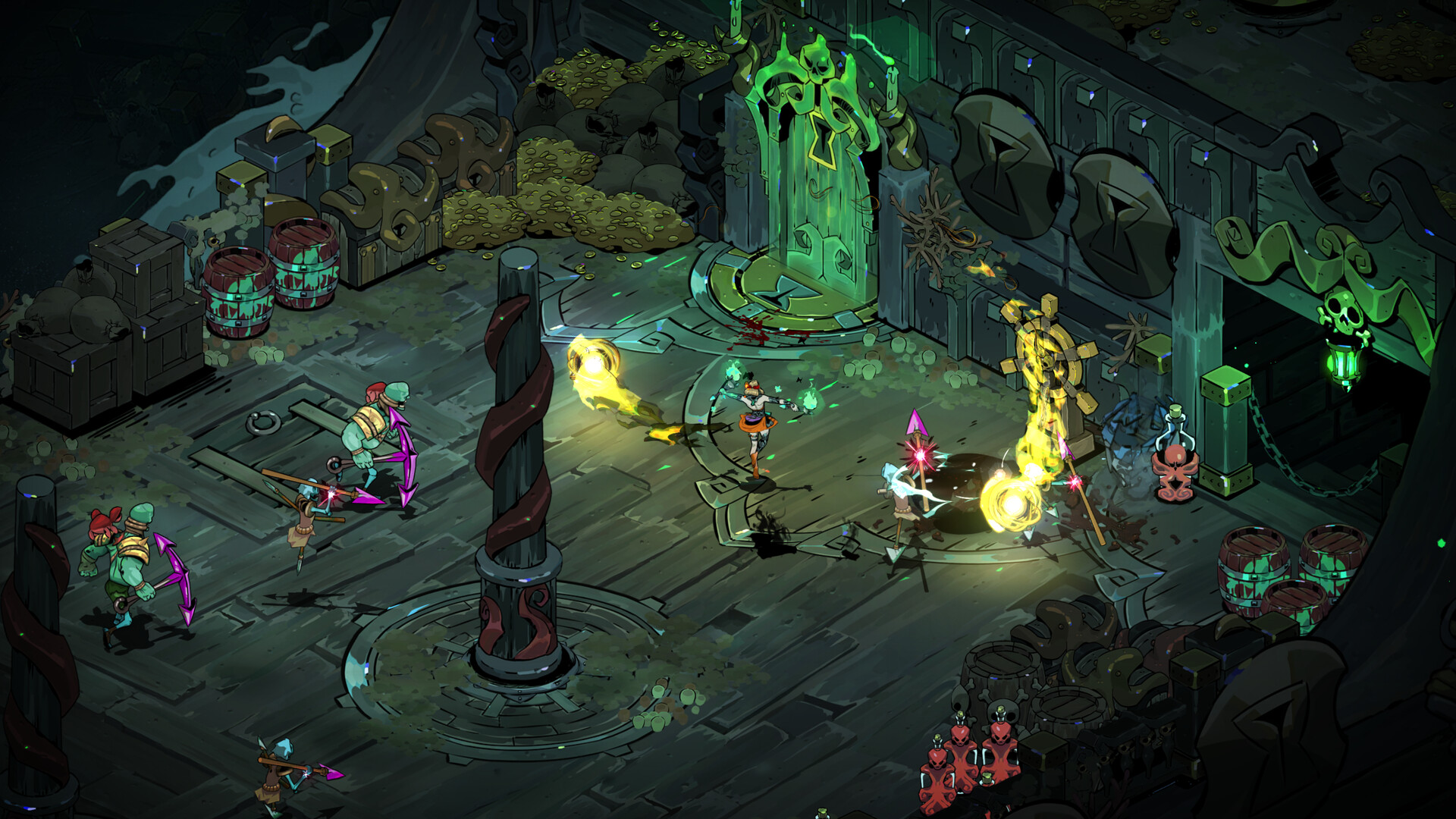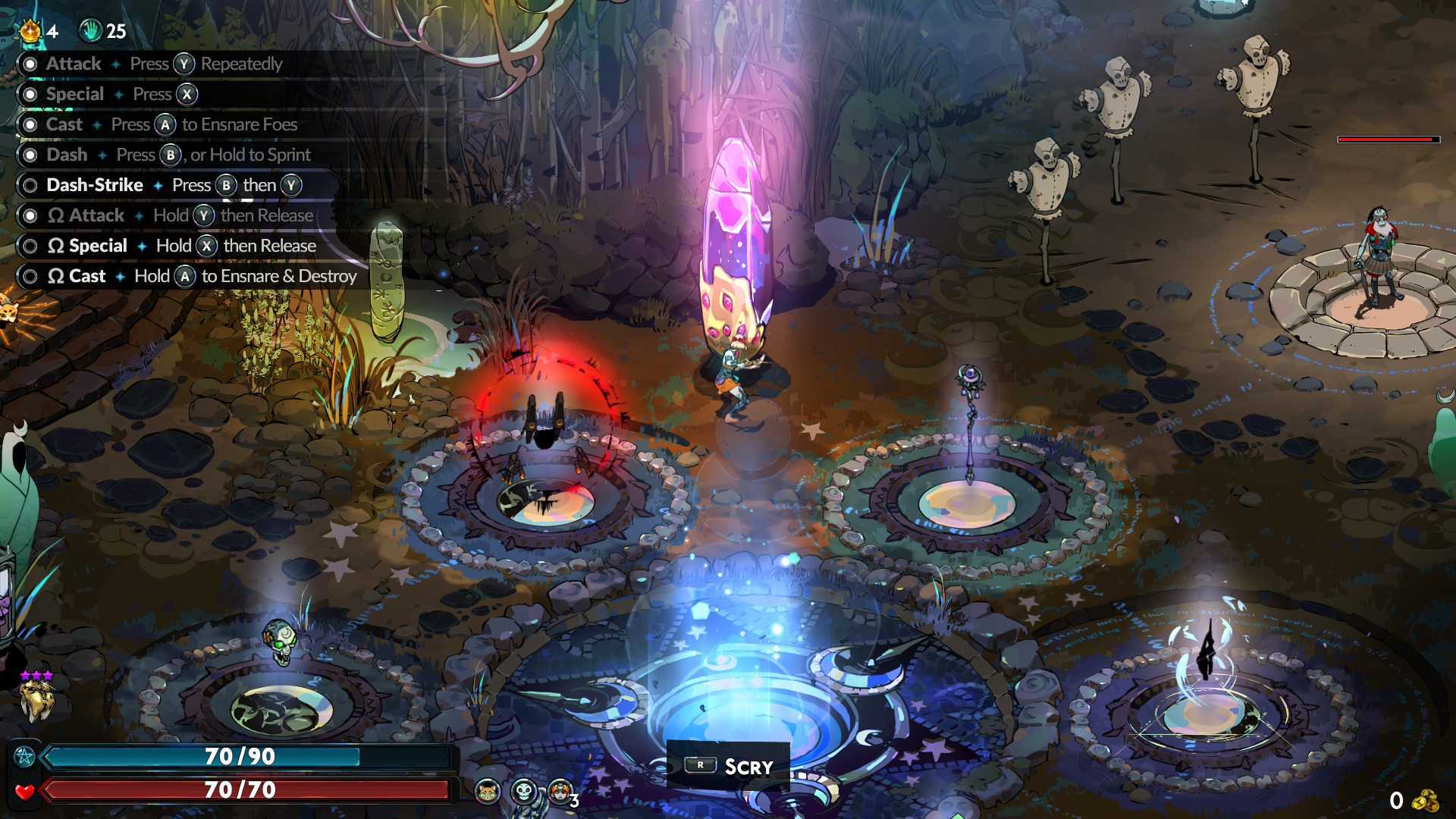
I’ve played a lot of roguelikes, and it’s hard to impress me now. I used to be a big fan, but with so many indie and major game developers making games in the genre, I’ve gotten a little burned out. Still, I knew Hades 2 would be different – like the first Hades, it has a special quality that immediately grabs your attention.
The best parts of the original Hades were its story and characters, and Hades 2 continues that tradition. Most of the characters from the first game are missing, having been imprisoned by Chronos, the titan of time, who has undone the previous happy ending. You won’t play as Zagreus this time; instead, you’ll take on the role of Melione, Hades’ younger daughter. She was hidden as a baby and raised by witches, and now she’s training to defeat Chronos and find her family.
Honestly, this is a great way to start a sequel. Killing off a lot of the old characters means they aren’t stuck repeating the same story beats. Instead, we get a fresh cast based on Greek myths, and I’m really excited to get to know them and learn all about their backstories!
The writing is excellent, just like in the first game. You quickly learn about Melione’s past and her connections with other characters through natural conversations – there’s no need for lengthy flashbacks. It’s easy to understand their relationships: Hecate acts as a mother figure, Nemesis is her rival, Odysseus is a supportive uncle, and Hypnos is… well, always sleepy. That last part was pretty obvious, though.

You’ll have more ways to connect with characters this time around. Your new home base, the Crossroads, is larger than the House of Hades and expands as you play. While you can still build relationships by giving characters Nectar, you can now also invite them to the hot springs with Bath Salts or go fishing with Bait. These new options add variety to the bonding moments and help you get to know each character even better.
Removing the original characters makes moments revealing their fate or sharing their history even more impactful. The game recognizes how much players cared for them, and this enhances the connection with the new characters as well, making both groups memorable.
The game’s art remains consistently excellent. Each character features beautifully hand-drawn portraits, and the world itself is thoughtfully designed. The developers opted for a more subdued color scheme, which fits the game’s overall atmosphere. We see this contrast in the characters’ backgrounds: Zagreus grew up in a luxurious palace, while Melione was raised in a hidden camp in the woods, constantly living on the edge between the world above and the underworld.
However, the game’s bright colors become even more impactful, making each god appear strong and majestic through their distinct color schemes. Melione’s bold orange, in particular, helps her remain visible during the chaos of battle.

The already fast-paced combat from the first game has been refined even further. The new weapons and Melione’s abilities are a blast to experiment with. Each weapon includes both a close-range and a long-range attack. Holding the attack button charges up a more powerful ‘Omega’ version, but leaves you open to enemy attacks during the charge. To balance this, you can also deploy a magical circle that traps enemies, making them easy targets.
Combat is deeply strategic, requiring you to dodge, find opportunities, and manage the battlefield. You’ll need to prioritize enemies, set traps, and then unleash powerful attacks. The gods return with their boons, which drastically change how your abilities function, offering huge build variety. Even if you prefer a single weapon, these modifications keep each playthrough feeling fresh and unique.
Hades 2 keeps things fresh by offering two distinct storylines. You’ll need to complete both to finish the game. The primary goal is still to fight your way through the Underworld and defeat Chronos in Hades’s realm. However, after making some progress, you’ll unlock a second path: ascending to the surface to battle a new monster threatening Mount Olympus.

The game offers a wide range of challenges, and you can even unlock special altars to increase the difficulty for bigger rewards or try specific challenge runs with predetermined gear. This variety extends beyond just gameplay, adding depth to the story. You’ll be managing two different threats simultaneously, and their stories intertwine, especially as the gods and allies helping you have their own agendas and priorities for what you should tackle first.
You’ll often find your plans changing in this game. To unlock new areas, characters, and upgrades, you need to collect lots of different resources, and these resources are specific to certain locations, either in the underworld or on the surface. This means each night, you have to decide not just *which* challenge to attempt, but also *where* to get the best rewards to help you progress. This system encourages variety and prevents you from getting stuck repeating the same strategy.
It’s hard to imagine a better sequel to Hades. Hades 2 improves on everything that made the first game great, offering a deeper connection to the story and characters. The combat is even more polished, giving you fantastic control as you battle countless enemies and navigate beautifully designed levels. Ultimately, both Hades and Hades 2 stand out as the best roguelike games available.
More reviews on DBLTAP:
Read More
- 39th Developer Notes: 2.5th Anniversary Update
- The 10 Most Beautiful Women in the World for 2026, According to the Golden Ratio
- TON PREDICTION. TON cryptocurrency
- Gold Rate Forecast
- Bitcoin’s Bizarre Ballet: Hyper’s $20M Gamble & Why Your Grandma Will Buy BTC (Spoiler: She Won’t)
- 2025 Crypto Wallets: Secure, Smart, and Surprisingly Simple!
- Nikki Glaser Explains Why She Cut ICE, Trump, and Brad Pitt Jokes From the Golden Globes
- Ephemeral Engines: A Triptych of Tech
- AI Stocks: A Slightly Less Terrifying Investment
- 20 Games With Satisfying Destruction Mechanics
2025-09-25 13:17